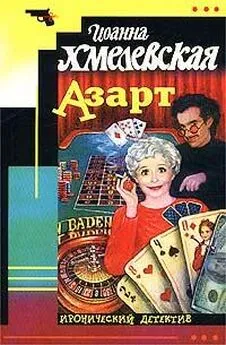Barbara Hambly - Dead water
- Название:Dead water
- Автор:
- Жанр:
- Издательство:неизвестно
- Год:неизвестен
- ISBN:нет данных
- Рейтинг:
- Избранное:Добавить в избранное
-
Отзывы:
-
Ваша оценка:
Barbara Hambly - Dead water краткое содержание
Dead water - читать онлайн бесплатно полную версию (весь текст целиком)
Интервал:
Закладка:
It was well and truly dark now, and the mosquitoes hummed thick as the trees on the bank faded to a sable wall. Close enough, January thought, for Levi Christmas and his boys to easily swim. But the Silver Moon couldn't go farther into the river, for fear of being caught by the current and swept down toward New Orleans again, and the hands came and went on the deck, carrying wood into the insatiable furnace maws. Every time January had walked along the starboard promenade he'd seen flies by the hundreds swarming around the shut door of Weems's stateroom, and latterly he had begun to smell the unmistakable sweet sickliness of the corpse inside. It was nearly fifty miles to Mayersville. Unless they caught up on a bar they should reach it by noon.
It would still make an unpleasant task for the undertaker.
And a worse one, he thought, for himself and Hannibal, to explain to the Issaquena County sheriff why they could not leave the Silver Moon.
Both Mrs. Fischer and Molloy knew that Rose was friend to Hannibal and him. Even if she remained with the boat, God knew what would happen to her, between Mayersville and Memphis, if she made it that far.
Winslow was right, he thought, looking sidelong at Rose's angular profile as she chatted with Sophie. He would lay money on Molloy or Cain having done the murder, despite having explanations for their whereabouts at more or less the moment of the crime, with a side-bet on Mrs. Fischer, night-dress and all.
And none of the three would hesitate even a moment to dispose of Rose the instant he and Hannibal were off the boat.
Looking up, he saw the fiddler descending the steps, though by January's estimation supper had barely started. “You're quite correct,” agreed Hannibal, perching himself on the rail and producing his bottle of opium-laced sherry. “After this afternoon's events I am completely persona non grata. Every lady on the boat, including little Melissa Tredgold, gave me the cut direct and dragged their menfolks away as if I had the Black Death. God knows what Mrs. Fischer told them in the Ladies' Parlor—she was there, by the way, decked out in complete black. Your handiwork is much to be congratulated,” he added, taking the flustered Sophie's hand, bowing deeply, and kissing her fingers.
“According to Souter, Molloy was in the pilot-house continuously from the time they walked the boat over the bar until he went down to the Saloon at twelve-thirty. After Molloy left last night, Lundy came up—he often does, Souter says, for he doesn't sleep well on account of his illness.”
Hannibal shivered as if at some terrible memory, and drank a quick sip of sherry to chase it away. “And on the subject of Mr. Lundy's illness, Souter was . . . comprehensive. He related every symptom and theory concerning the palsy, illustrated with anecdotes from Souter's own experience or the experience of literally hundreds of people he's talked to, is related to, or has heard about from second-cousins twice removed, ad infinitum. . . . The man makes Polonius look like a Spartan. If I could have escaped the pilot-house by cutting off my own foot, I'd have done it.
“I was also treated to Lundy's complete biography, with speculative side-trips into the histories of the various boats Lundy—and three other fellows from whom Souter never could tell Lundy apart—ever piloted, plus what Henry Clay said when Lundy—or one of the other three fellows—accidentally swung the Aetna around a little too sharply coming away from the wharf in New Orleans and put the paddlewheel through the dining-room wall of the Desdemona .”
“What did he say?” asked Rose curiously, for she, like January, was a great admirer of the Kentucky politician.
“Something along the lines of ‘Get that thing out of here, we haven't had our coffee yet.' Souter's tales are definitely of the Parturient montes variety, though at the end of the birthing, one is lucky even to get a mouse.” Hannibal sighed, and sipped more sherry with a shaky hand. “On the other hand, I now know that Kelsey Lundy is fifty-one years old, that he was born in Kennebec, Maine—what appalling names Americans give their towns—where his three daughters, Elsie, Mary, and Margaret, still live with their assorted progeny, whose names I will spare you; that he goes to see them nearly every summer; that he came to New Orleans with Jackson's troops and that the first boat he piloted was the Volcano, to Louisville, in 1815. He is a teetotaler and an outspoken Abolitionist and once engaged in a duel with a man in New Orleans who was beating a slave in the street, a circumstance which gave him such a disgust for the town that after that, apparently, he seldom went ashore in New Orleans at all. Cutting to almost nil,” he added regretfully, “the occasions upon which he might have met Mr. Weems, unless they encountered one another by chance at an Abolitionist meeting in Boston.”
“Curious,” mused January, “that as badly advanced as Lundy's palsy is, he would still be in New Orleans at all, instead of returning to Maine and his daughters.”
“He returned to New Orleans the week before last, on the Sprite, ” said Hannibal. “For his health, he said. . . .”
“In the summertime ?” Rose and January spoke almost in chorus, and January added, “Nobody in his right mind goes to New Orleans in the summer for his health.”
“Regarding Mr. Lundy's mental condition, I have no data. And if you ask me to question Souter further on that or any other subject whatsoever, I shall throw myself overboard.” He capped the bottle regretfully and tucked it into his coat pocket.
“The Sprite came into New Orleans a week ago Saturday,” said Rose. “I saw the men still unloading the last of her cargo as we waited for you in the market. That means Lundy came into New Orleans—presumably to see a doctor—with the expectation of immediately turning around and piloting a boat up the river, in low water, in order to see another doctor in Lexington. . . . It doesn't make sense.”
“It makes sense,” said January grimly. “It's only we who can't see the rest of the pieces of the puzzle. Winslow,” he called, and the valet, who was just heading for the stair to be in his master's stateroom when Mr. Roberson returned from supper, turned back with an expression of friendly inquiry.
“We were just talking about poor Mr. Lundy here on board. . . .”
“The poor gentleman with the palsy?”
January nodded. “Now, my old master, who was a surgeon, spoke of a doctor at Transylvania University in Lexington who's done work with the palsy—who's had some remarkable cures—but for the life of me I can't remember his name. Since Mr. Roberson is at the University, too . . .”
Winslow's honest face creased for a moment with thought. Then he shook his head. “Your master musta heard wrong, Ben, or else you got it crossed up with some other university. I know most of the gentlemen in the medical faculty that come out to Mimosa to dinner with Mr. Roberson and there's none of 'em that's worked on the palsy.”
“Hmm.” January shook his head with mild regret. “I coulda sworn, but you're right, I might have heard wrong—Michie Simon always did get one university mixed up with another. Sorry I troubled you.”
“No trouble at all.”
“Angels and ministers of grace defend us,” said Hannibal thoughtfully. “Definite indications that something is rotten in the state of Denmark. But if you can think of a way poor Lundy could have heaved even so minor a specimen as Weems overboard by main strength, I'll give you a sweet. And speaking of sweets . . .”
He fished in a pocket of his too-large silk vest and produced a folded piece of notepaper. The scent of it—a sickly reek of cheap geranium—hit January like a slap in the face with a slightly wilted bouquet. He didn't even need to ask who had sent it.
I must see you alone! ran the delicate, if rather unformed, writing, the exclamation point a frenzied balloon and the tails of the long letters tortured into girlish curlicues. I beg you wait for me in your room at ten I have inportant news to inpu inper tell. Theodora.

SIXTEEN
Being no fool, and not trusting Theodora Skippen farther than he could throw January's piano, Hannibal arranged for January to loiter unobtrusively on the wide bow apron of the upper deck, to be on hand should the young lady either produce a weapon or scream rape. “Not that your testimony would be of the slightest use in a court of law in this country,” added Hannibal, setting a large japanned tin tray—pilfered from the galley—on the foot of the bed and balancing on it three tin cups and half a dozen pieces of silverware from the same source. “But Colonel Davis may be disposed to listen to you informally, and draw his own conclusions. I suppose it's the best we can do.”
It being only eight o'clock, and most of the cabin passengers still at dinner, January and Hannibal then descended to the lower deck, where Rose was seated beside the smudge-pot, talking to Cissy. The nursemaid looked harried as usual as she devoured her bowl of rice and beans: “. . . pretendin' to be asleep good as gold, but the fuss they both put up I know it's just pretend . . .”
The end portion of the promenade was otherwise deserted, for the piles of cordwood separating the servants from the chained slaves were nearly gone. The whole line of Gleet's coffie, and Cain's, were visible now, wolfing down their beans and rice from gourd bowls or passing tin cups of water along the line. Stepping back into the passway, January glanced through the engine-room door. As he'd suspected, the hands were bringing in the smaller quantities of wood from the bow.
Supper over, Eli's voice could be heard through the passway from the women's side of the boat, chatting with his old mother and with a young woman of Cain's coffle as he played with her child.
The narrow door that led down to the hold, thick with shadow, seemed to beckon like Aladdin's Cave.
“You got your pick-locks?”
Hannibal produced them without a word.
The profound stillness within the bowels of the ship seemed to breathe, a velvet-black abyss beyond the feeble rectangle of torchlight falling down the ladder from the passway. For fear of drawing attention, January carried no light—the most he'd have been able to provide was the candle-end he habitually carried in one pocket—and beyond the first few jumbled outlines of trunks and crates, stacked any-old-how where the deck-hands had left them, it was as if the universe itself fell away to nothing. Overhead, men's footfalls creaked in the engine-room, masking whatever tiny noises another human's presence might have produced, but January smelled the very faint whisper of habitation, of a latrine-bucket hidden somewhere in the darkness.
She was there, all right. Or someone was.
He drew a deep breath, then said, “It's me. I know you're there. Please, speak with me.”
Silence. He remembered the wrinkled, furious face in the torchlight of Congo Square, the rotting rooster-head Rose had brought to him, still covered with specks of down from the pillow it had been sewn up in. The rasping whisper in the darkness of the cemetery: I curse you to the ruin of all you touch, and the destruction of all you hope . . . .
He had never in his life expected the extent of jeopardy that he now stood in, with the money vanished, and the near-certainty of arrest and detention—and possible hanging—facing him when the boat reached Mayersville.
Читать дальшеИнтервал:
Закладка:








